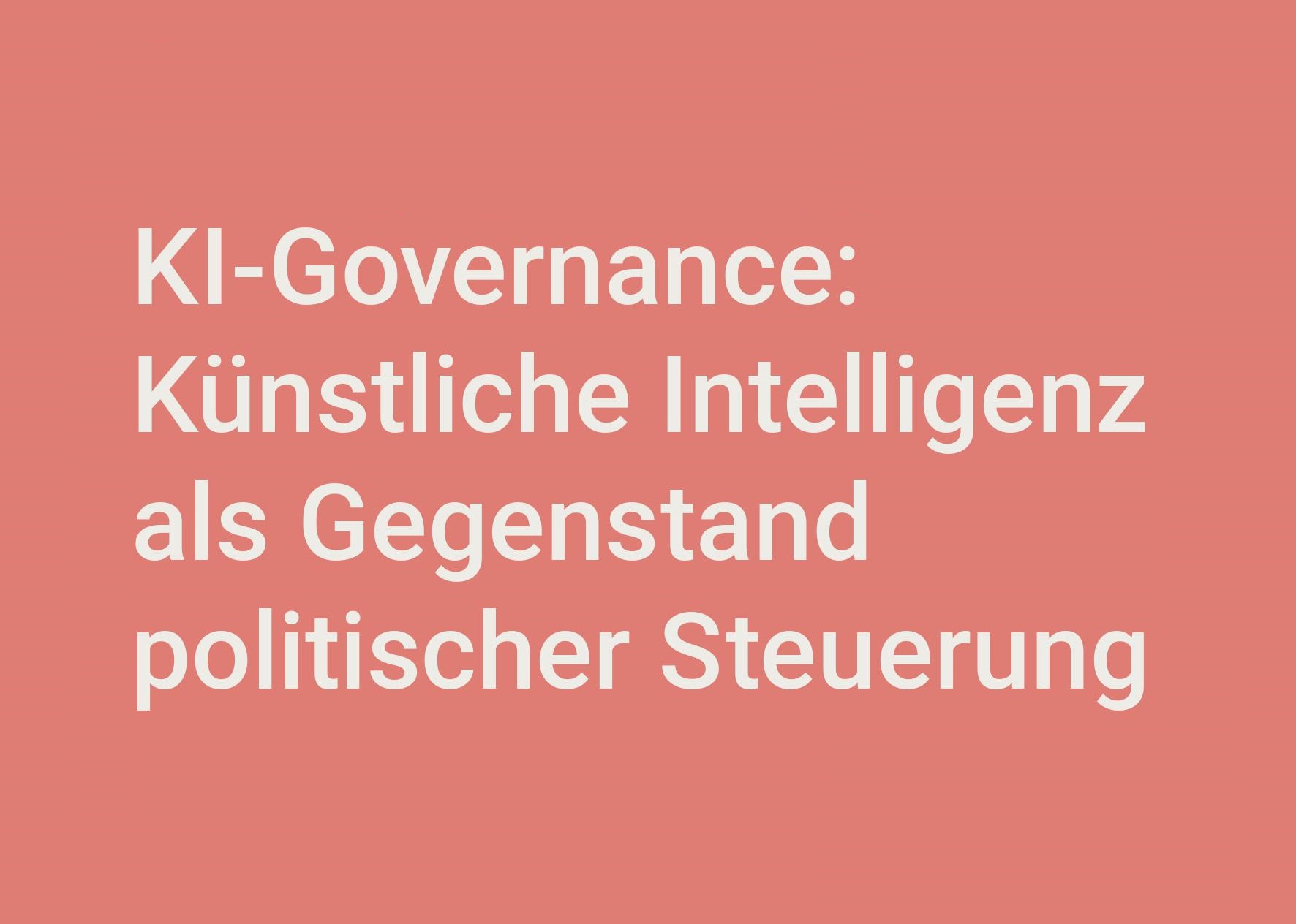AI Governance: Artificial Intelligence as a Subject of Political Control

Up to now, there has been a lack of scientific studies on the possibilities of intervention, control and design of politics in the field of artificial intelligence (AI). Against this background, the project examines and systematizes the approaches to state control that have been taken so far. The basis is formed by existing initiatives and expertise at the federal and state levels.

Some German states have already developed political initiatives on the topic, for example as part of the Digitalstrategie.NRW, the flagship project KI@BW, or the AI initiative of the Bavarian State Ministry for Digital Affairs.
“At the latest since the German government’s current coalition agreement, artificial intelligence (AI) has also become a political issue in Germany. The number of expert opinions commissioned by politicians and newly established committees has risen accordingly.”
Prof. Dr. Christoph Bieber
Policy Paper
AI Governance – Artificial Intelligence as a Subject of Political Control
So far, there has been no systematic investigation of the possibilities for intervention, control and design beyond technical solutions and the implementation of various political measures in the new policy field of “artificial intelligence”. The research project “AI Governance” addresses these problems. Based on the existing political initiatives and available expert reports, the following questions will be answered:
Which concrete political measures are developed and implemented from the different projects, initiatives and strategies in the field of “Artificial Intelligence”? Which political actors are taking responsibility for the new policy field, and what form does coordination between the federal and state levels take? What recommendations for the development and implementation of instruments and institutions can be made on the basis of the results of the study?
The problem of coordinating such initiatives in a new policy field is not new – even in the area of general network and digitization policy, confusing constellations of actors have emerged at both the federal and state levels in recent years. Although there are works in political science research that explicitly address the emergence of a new policy field (Greef 2017; Reiberg 2018), no clear rules and patterns in the formation of concrete structures, bodies, or approaches to action can yet be identified from the available studies.
Visualization of previous developments
The aim of the project is to make the development of an “AI policy” visible in its different dimensions, to analyze cooperation and competition relationships and to investigate the question of whether the control and regulation of artificial intelligence should be understood as an independent policy field. Two consecutive methods address the research questions: On the one hand, a systematic inventory of existing AI initiatives in politics and, on the other hand, personal interviews with experts.
- Systematization of existing AI initiatives
- Complete survey of all previous committees, strategy papers, expert opinions and catalogs of measures at the state and federal level.
- Content analysis of relevant documents in preparation for the expert interviews.
- Expert interviews
- Identification of experts who play key roles in the discourse
- Grouping: politicians, commission members, practitioners, civil society actors
Significance for (political) practice
The results of the survey will be published in a policy paper aimed at members of the state parliament and employees of the ministerial bureaucracy, primarily in North Rhine-Westphalia. The paper will contain the key points of the systematic stocktaking as well as a condensed reflection and summary of the statements of the interviewed experts. On this basis, recommendations for action will be developed to help the stakeholders involved in the further development and implementation of AI governance in the context of the NRW digital strategy.
Literature
Greef, S. (2017). Netzpolitik – Entsteht ein Politikfeld für Digitalpolitik? Kassel: Kassel University Press.
Reiberg, A. (2018). Netzpolitik. Genese eines Politikfeldes. Baden-Baden: Nomos.
Participating researchers

